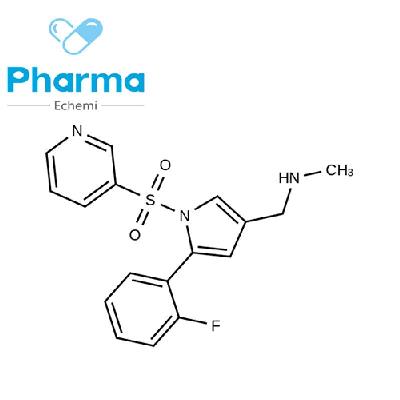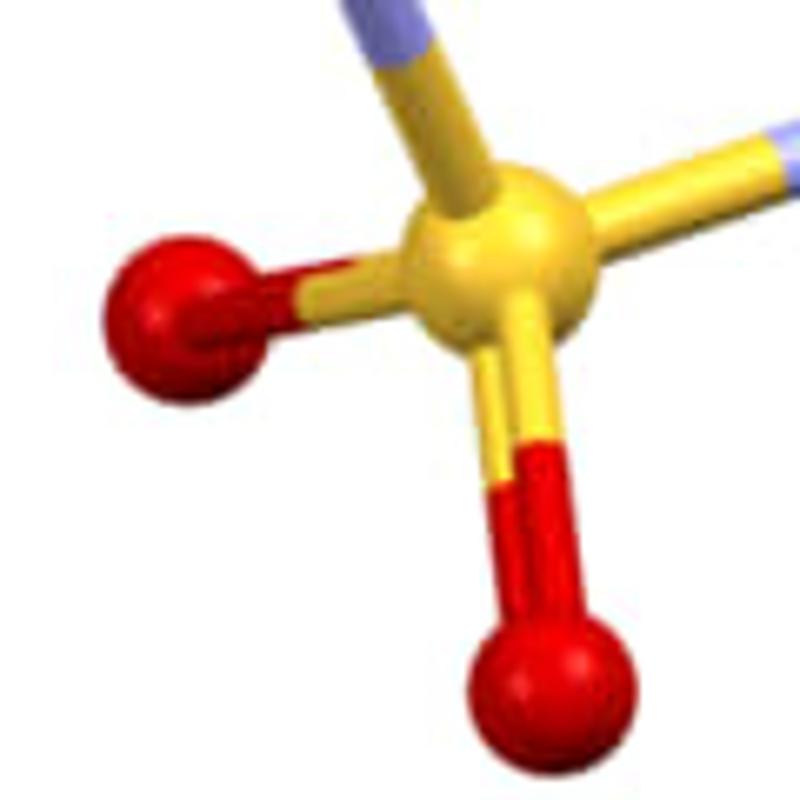-
Categories
-
Pharmaceutical Intermediates
-
Active Pharmaceutical Ingredients
-
Food Additives
- Industrial Coatings
- Agrochemicals
- Dyes and Pigments
- Surfactant
- Flavors and Fragrances
- Chemical Reagents
- Catalyst and Auxiliary
- Natural Products
- Inorganic Chemistry
-
Organic Chemistry
-
Biochemical Engineering
- Analytical Chemistry
-
Cosmetic Ingredient
- Water Treatment Chemical
-
Pharmaceutical Intermediates
Promotion
ECHEMI Mall
Wholesale
Weekly Price
Exhibition
News
-
Trade Service
November 11, 2022 / eMedClub News / -- November 9, 2022, companies that use RNA therapy to treat cancer TransCode Therapeutics announces positive preclinical results for its RNAi therapy candidate TTX-siPDL1 for the treatment of pancreatic cancer.
Currently, the company is the only company
that uses RNAi to target PD-L1.
TTX-siPDL1 uses PD-L1-targeting siRNA as its functional component and may trigger degradation and/or translation inhibition of PD-L1 mRNA, inactivating PD-L1 at the post-transcriptional level while delivering
using the company's proprietary nanoparticle delivery system.
TransCode implanted a highly aggressive mouse cell line directly into the pancreas of recipient mice to construct an animal model of pancreatic cancer with a twice-weekly treatment with TTX-siPDL1 in combination with the standard chemotherapy drug gemcitabine, resulting in tumor volume 25% of that of untreated animals.
By the fifth week of treatment, 75 percent of the mice that received the combination were still alive, and only 25 percent
of the mice that received standard chemotherapy alone.
Immune cell analysis of tumors in treated mice showed that TTX-siPDL1 successfully inhibited PD-L1 and immune cell activation, which is consistent
with the known mechanism of action (MOA) of checkpoint inhibitors.
Baji Biotech is recruiting plasmid engineers with a monthly salary of about 1w, click to view >>>
For siRNA, the delivery platform is the key
to maintaining the effectiveness of drugs without degradation in the human body.
TransCode has developed the nanoparticle delivery platform TTX, which uses iron oxide nanoparticles to deliver drugs to tumor cells, which can realize MRI imaging, quantify drug delivery efficiency, and have the advantages
of long cycle half-life, avoiding early renal and liver clearance, high specificity accumulation in tumor cells and metastatic sites, high affinity, high stability, low toxicity and low immunogenicity.
Designed to overcome the challenges of existing lipid and liposome systems delivering RNA therapeutics within tumor cells and metastatic sites, the platform has demonstrated the ability to deliver RNA drugs, including siRNAs, antisense oligonucleotides (ASOs), and non-coding RNA mimics
, in preclinical studies.
▲ Company pipeline Source: TransCode official website
TransCode uses a modular drug design approach to develop drug candidates, based on the modular design of therapeutic development, genetic code, nanocarrier delivery mechanism and image guidance four elements to develop, the company has a total of three RNAi drugs, the main therapeutic candidate TTX-MC138 for the treatment of metastatic cancer, and released the latest clinical data in October this year, TTX-siLIN28b, the RNAi drug also entered the preclinical stage
。 The remaining three drugs, TTX-RIGA, TTX-CRISPR and TTX mRNA
, are still in the early stages of development.
Pancreatic cancer and innovative immunotherapy
Pancreatic cancer is hidden, malignant, aggressive, and has a very poor prognosis, and is known as the "king of all cancers"
.
According to the 2020 global cancer data released by WHO, there were 9.
96 million cancer deaths worldwide, including 470,000 deaths from pancreatic cancer, ranking seventh in cancer deaths, while the five-year survival rate of this cancer is only 5%-10%, and the five-year survival rate of advanced patients is about 0.
1%.
At present, pancreatic cancer has proved difficult to treat with conventional drugs and has developed some resistance to early immunotherapy, in part because of the presence of a thick fibrous canopy around the tumor, which inhibits therapeutic drugs and immune cells from entering the tumor, and more effective treatment is still needed in this area
.
CAR-NK
In December 2021, an innovative research paper was published in the journal Gastroenterology, which showed that CAR-NK therapy can accurately target PSCA, a special target of pancreatic cancer, and significantly inhibit pancreatic cancer
.
The researchers combined the allogeneic PSCA gene with cord blood-derived CAR-NK cells (PSCA-CAR_s15-NK) and fed them back into mouse models, where the NK cells survived for more than 90 days, showing strong potential
for the treatment of pancreatic cancer.
TCR-T
In June 2022, an article titled "Neoantigen T-Cell Receptor Gene Therapy in Pancreatic Cancer.
" In the article, published in The New England Journal of Medicine, the researchers engineered the patient's T cells in vitro to express two different TCRs to recognize peptides containing G12D mutations presented by HLA-C*08:02 molecules, and would not respond to wild-type KRAS to precisely target pancreatic cancer cells
carrying the KRAS G12D mutation.
The treated pancreatic cancer patient had previously experienced a large number of treatment failures, and after receiving the novel TCR-T therapy targeting the KRAS G12D mutation, the patient's metastases shrank by 72%
throughout the body.
Targeting KRAS G12D mutations using TCR cell therapy can mediate regression of metastatic pancreatic cancer tumors, but TCR-T therapy depends on the patient's specific HLA genotype, and more prospective clinical trials are needed to further validate
this therapy.
MultiTAA-T cell therapy
In January 2022, Marker Therapeutics announced that the FDA granted its Multi-Antigen Targeted T Cell Therapy (MultiTAA-T Cell Therapy) MT-601 orphan drug designation for the treatment of pancreatic cancer
。 MT-601 is a multi-antigen targeted T cell therapy developed by Marker Therapeutics based on its MultiTAA technology platform, which can target up to 6 antigens, including PRAME, NY-ESO-1, Survivin, MAGE-A4, SSX2, WT-1, and no trial data
for this drug against pancreatic cancer have been published.
Oncology vaccines
In June 2022, BioNTech presented the latest data from its phase 1 trial of mRNA-based individualized neoantigen-specific immunotherapy (iNeST) autogene cevumeran (BNT122), a personalized mRNA tumor vaccine used in combination with the PD-L1 inhibitor atezolizumab and chemotherapy.
It has demonstrated good efficacy and safety
in phase 1 clinical trials for the treatment of patients with pancreatic cancer undergoing surgical resection.
Recommended reading: ASCOIndividualized mRNA vaccine vs "King of Ten Thousand Cancers", another new action of BioNTech!
brief summary
TransCode's RNAi therapy and nanoparticle delivery vector is a unique treatment for pancreatic cancer, in addition to the therapies mentioned in the article, there are many other therapies that are also being studied for solid tumors, such as CARsgen Pharmaceutical's CAR-T therapy CT041 targeting Claudin18.
2, which mainly treats gastric cancer/gastroesophageal junction cancer and pancreatic cancer
。 At present, these drugs are still in clinical trials and preclinical stages, and it is believed that with the further improvement of technical level and understanding of pancreatic cancer, the "king of all cancers", existing drugs will further improve the effectiveness, safety and accessibility
.
Resources:
1.
style="margin-right: 16px;margin-left: 16px;white-space: normal;max-width: 100%;line-height: normal;overflow-wrap: break-word !important;box-sizing: border-box !important;margin-bottom: 0px;">2.
style="margin-right: 16px;margin-left: 16px;white-space: normal;max-width: 100%;line-height: normal;overflow-wrap: break-word !important;box-sizing: border-box !important;margin-bottom: 0px;">3.
Teng, Kun-Yu et al.
“Off-the-Shelf Prostate Stem Cell Antigen-Directed Chimeric Antigen Receptor Natural Killer Cell Therapy to Treat Pancreatic Cancer.
” Gastroenterology vol.
162,4 (2022): 1319-1333.
doi:10.
1053/j.
gastro.
2021.
12.
281
4.
Leidner R, Sanjuan Silva N, Huang H, Sprott D, Zheng C, Shih YP, Leung A, Payne R, Sutcliffe K, Cramer J, Rosenberg SA, Fox BA, Urba WJ, Tran E.
Neoantigen T-Cell Receptor Gene Therapy in Pancreatic Cancer.
N Engl J Med.
2022 Jun 2; 386(22):2112-2119.
doi: 10.
1056/NEJMoa2119662.
PMID: 35648703; PMCID: PMC9531755.
——List of recent popular events——







